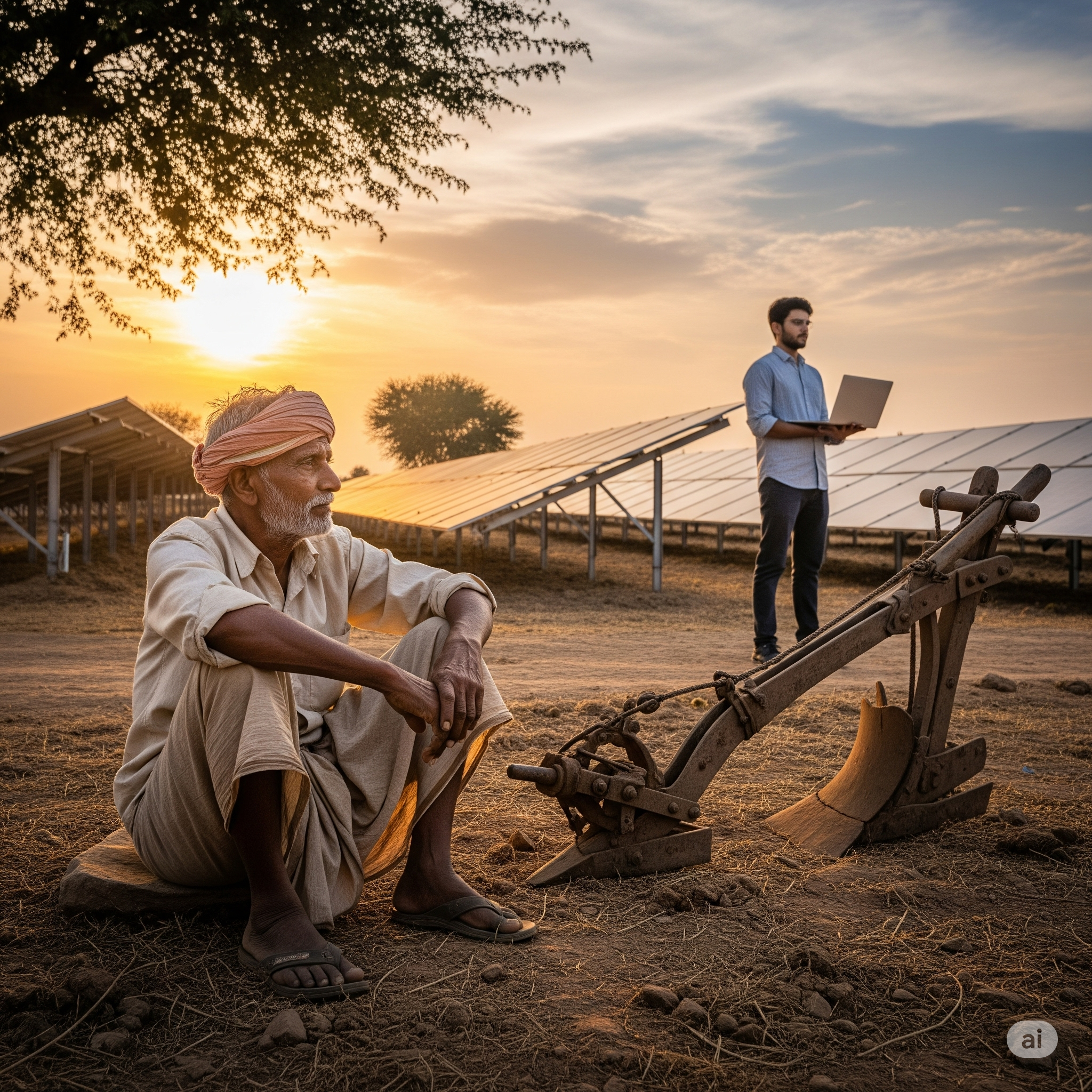
The Philosophical Implications of Economic Policies in Uttar Pradesh
- admin
- August 15, 2025
- Economy, Uttar Pradesh
- 0 Comments
Balancing Growth, Equity, and Ethics in India’s Largest State
Lucknow – As Uttar Pradesh emerges as an economic powerhouse with ambitious policies to attract investment, generate employment, and boost industrial output, questions about the philosophical underpinnings of its economic strategies are increasingly relevant. Are these policies guided by principles of equity and sustainability, or do they prioritize rapid growth at the cost of ethical considerations and social justice?
With a population of over 240 million, Uttar Pradesh presents a unique challenge: balancing economic development with the principles of fairness, inclusivity, and long-term sustainability.
Economic Growth in Uttar Pradesh: A Snapshot
- Investment Surge: During the UP Global Investors Summit 2023, the state secured investment proposals worth over ₹35.5 lakh crore, promising to create approximately 93 lakh jobs.
- Industrial Expansion: Major projects like the Jewar International Airport and Ganga Expressway are expected to boost connectivity and industrial growth.
- MSME Focus: Uttar Pradesh leads in the number of Micro, Small, and Medium Enterprises (MSMEs) in India, with over 90 lakh MSMEs, contributing significantly to employment and exports.
While these numbers signal robust economic activity, the philosophical implications of these policies demand scrutiny.
Philosophical Foundations in Economic Policy
1. Dharma: Duty Towards Society
In Indian philosophy, dharma (duty) emphasizes ethical responsibility toward all sections of society. Economic policies in Uttar Pradesh are often judged by their ability to uplift marginalized communities.
- Example: The One District, One Product (ODOP) scheme, which promotes traditional crafts like Varanasi silk and Moradabad brassware, aligns with dharmic principles by preserving cultural heritage while generating employment.
- Impact: The scheme accounted for exports worth ₹1.56 lakh crore in 2022, benefiting artisans and small-scale entrepreneurs.
2. Justice and Equity in Resource Allocation
Economic justice, a cornerstone of Islamic and Gandhian philosophies, calls for equitable distribution of resources.
- Challenge: While urban areas like Noida and Lucknow attract significant investments, rural regions often lag in infrastructure and job creation.
- Data Insight: Rural unemployment in Uttar Pradesh stands at 6.2%, higher than the urban rate of 4.1%, as per the Periodic Labour Force Survey (2021-22).
Environmental Philosophy and Sustainability
Economic development in Uttar Pradesh often intersects with environmental concerns, raising questions about the balance between growth and ecological preservation.
1. Exploitation vs. Stewardship
Traditional Indian philosophies, including those enshrined in the Bhagavad Gita, advocate for harmony with nature. However, large-scale industrial and infrastructure projects often conflict with this principle.
- Case Study: The construction of the Ganga Expressway, spanning over 600 kilometers, has faced criticism for its potential impact on wetlands and agricultural lands.
- Philosophical Question: Does rapid development justify the displacement of communities and environmental degradation?
2. Renewable Energy Push
In alignment with sustainability, Uttar Pradesh’s Solar Energy Policy 2022 aims to generate 10 GW of solar power by 2027.
- Impact: Projects like solar parks in Bundelkhand reflect a commitment to environmental stewardship while addressing energy needs.
The Role of Marginalized Communities
1. Inclusivity in Policy Implementation
Policies must address systemic inequities to ensure inclusive growth.
- Example: The Scheduled Caste Finance Development Corporation offers financial support for Dalits to start businesses, but uptake remains limited due to lack of awareness and bureaucratic hurdles.
- Recommendation: Strengthen grassroots outreach to ensure marginalized communities benefit from these schemes.
2. Labor Rights and Fair Wages
Economic philosophy must account for the welfare of workers who drive industrial growth.
- Challenge: Reports indicate that many workers in Uttar Pradesh’s burgeoning industrial hubs face low wages and poor working conditions, highlighting a gap between economic goals and ethical labor practices.
- NCRB Data: In 2022, over 10,000 cases of labor exploitation were registered in the state.
Urban-Rural Divide: A Persistent Ethical Challenge
Economic policies often disproportionately benefit urban areas, exacerbating inequalities between cities and villages.
- Data Insight: While districts like Gautam Buddh Nagar and Ghaziabad contribute significantly to the state’s GDP, rural areas like Shravasti and Bahraich continue to struggle with poverty, with poverty rates exceeding 30%, according to a report by the NITI Aayog in 2022.
- Philosophical Question: Can true development occur without addressing disparities between urban and rural communities?
The Future of Ethical Economic Policy
1. Balancing Growth and Equity
Experts argue that Uttar Pradesh must integrate philosophical principles of fairness and inclusivity into its economic framework.
- Example: Expanding the ODOP scheme to rural districts with untapped traditional crafts can promote equitable development.
2. Environmental Responsibility
Policymakers must prioritize sustainability, aligning development projects with traditional ecological values.
- Recommendation: Strengthen environmental impact assessments for large-scale infrastructure projects to minimize ecological damage.
3. Strengthening Education and Skill Development
Economic philosophy rooted in empowerment requires investment in education and skill-building programs to equip youth for emerging industries.
- Current Scenario: While programs like Digi Shakti have distributed 50 lakh tablets and smartphones, access to quality vocational training remains limited in rural areas.
Conclusion: Philosophy as a Guiding Framework
The economic policies of Uttar Pradesh are at a crossroads, offering immense potential for growth while raising critical questions about equity, ethics, and sustainability. By drawing on philosophical principles of dharma, justice, and environmental stewardship, the state can craft a development model that not only generates wealth but also uplifts its diverse population.
As Uttar Pradesh continues its journey of transformation, integrating these timeless principles into modern governance can ensure a future that is both prosperous and equitable.


